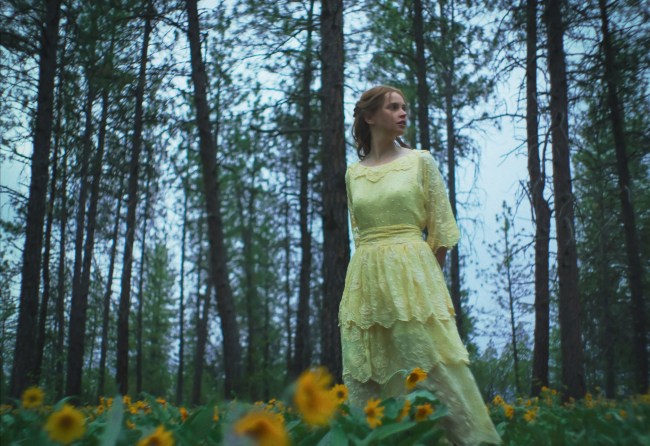The main character in “Train dreams,” Robert Grainier (Joel Edgerton), is a quiet man, but arguably one of the most important supporting characters in the latest film by director Clint Bentley doesn’t have a single line of dialogue. Visions of the American West—its forests and landscapes—both attract and haunt Grainier throughout his life, evoking unanswerable beauty and heartache that swirl around and around the logger and railroad worker, nonlinearly over the course of film. (Listen to an exclusive track from the score below.)
Creating an emotional score for a film that embraces the lyrical, dreamlike quality of the title gave the composer Bryce Dessner enough of a challenge to disrupt the way composers usually create a film score.
“A lot of times (composing) is kind of wedged into a corner of ‘you have 40 seconds to say something’ or whatever. But I felt like the music in this needed to develop more. It needed to simmer in its own juice a little bit more and be more like a composition. So half of the score I did where I had some images — I had stage stills and shot quite a lot of shots, but then I was shooting shots, but then I was shooting sequences, Dessner told IndieWire.
Dessner also deliberately went off-piste when choosing how to record “Train dreams” score for evoking the slower, older sense of connection to the world that the film explores.” (As part of) trying to access this older way of working, I worked in recording studios that weren’t set up for film. It was pretty funny. Getting a monitor into the live room was kind of a challenge, where normally that’s the first thing there,” Dessner said. “These older studios have this equipment from the ’30s and ’40s, and the old analog cards and microphones, so you can hear it on the score, a little crackling in the sound.”
Much like the film’s protagonist, there isn’t much that would be outwardly obtrusive or loudly experimental about Dessner’s music on “Train Dreams.” Much of it is simple, disciplined, ruminative in a way that won’t surprise anyone aware of his work with The National. But having the freedom to let the music breathe and develop makes the score feel emotionally expressive and never didactic.
“A lot of times composers and editors end up being problem solvers to put out a fire or bridge something; the first act is good, but there’s a tricky section in the middle, things like that. That’s not really the case with Clint and Greg. They’re really good filmmakers. They’re really bold filmmakers. Their scripts are pretty airtight, they say. “Music can do what words struggle to do, and the film itself is also really emotional, but it hits not over the head with it, you know?”

Which is not to say that Dessner didn’t get to play and drive the music from “Train Dreams” anything. “I tried some things that I haven’t done in film scores before — some of the more distant, alien harmonic ideas push it, I would say, quite far. Then, in a similar way, there’s very simple music there. Really like folk songs,” Dessner said.
Focusing on American folk music from the early 20th century was not only logical given the period in which “Train Dreams” is set. The spirit of the score—the African-American musical tradition coming out of slavery and the Civil War, merging with other immigrant cultures in Ireland, Scotland, and elsewhere—matches the spirit of the film, too, so wrapped up in how Grainier influences and is influenced by the changing American landscape.
“You know, people say America is a melting pot, and if you talk about the music, that’s really true,” Dessner said. “It’s almost impossible to distinguish where all of this comes from when it’s mixed together. And in terms of American identity, it’s fundamental. The way that the music and the landscape of America — you know, if I had to say the two unique things about the American experience, it would be those two things,” Dessner said.
Listen to an exclusive track from the score below.
“Train Dreams” opens in select theaters on November 7 before streaming on Netflix on November 21.







